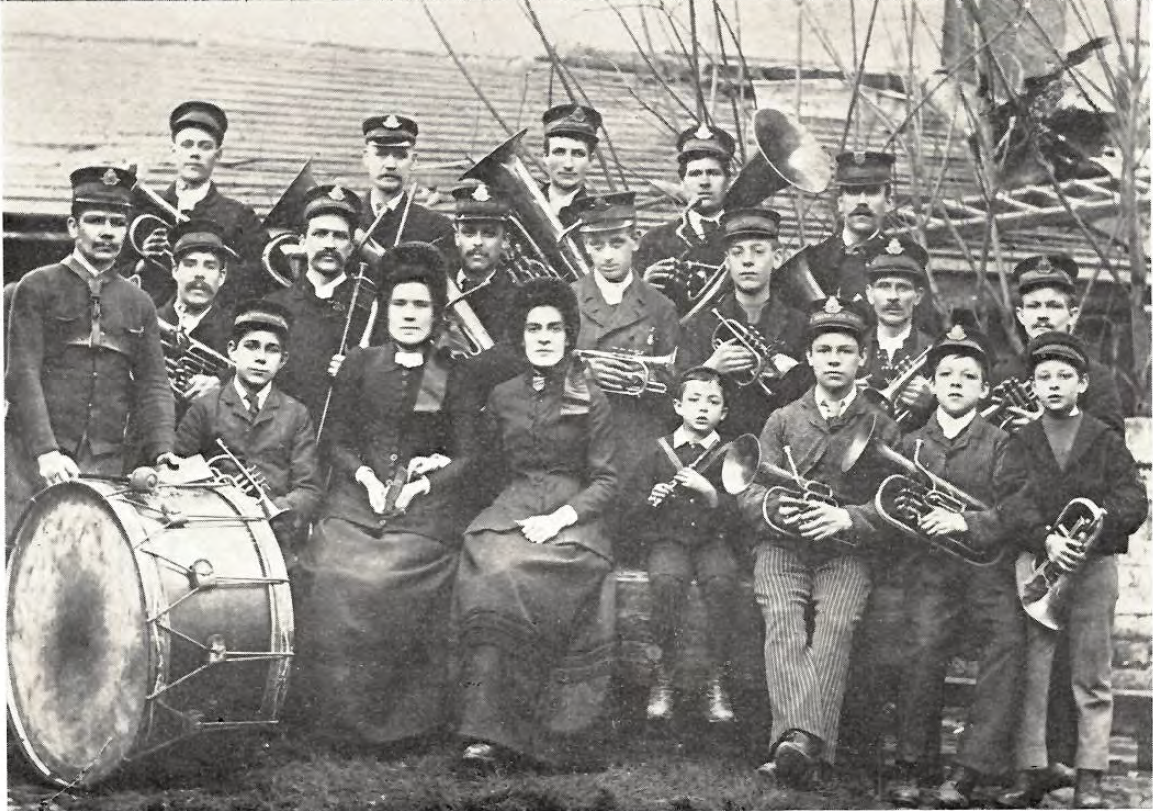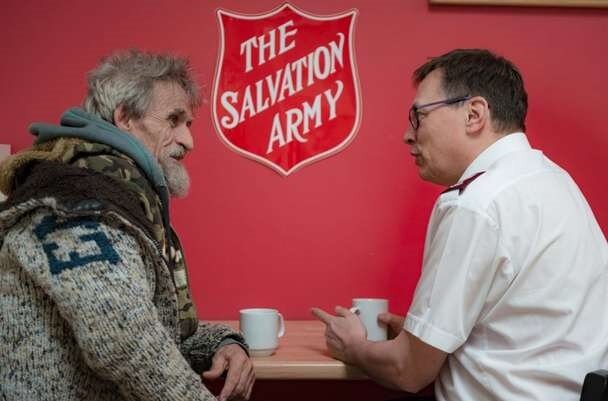The Salvation Army is marking 150 years in Wales throughout 2024 with a celebration titled Dyma Gariad/Here is Love. Jonathan Roberts looks at its work and heritage across the country today.
 Mae Byddin yr Iachawdwriaeth yn eich croesawu chi i Ranbarth Cymru. Welcome to The Wales Division of The Salvation Army.
Mae Byddin yr Iachawdwriaeth yn eich croesawu chi i Ranbarth Cymru. Welcome to The Wales Division of The Salvation Army.
Our history in Wales stretches back to before the movement became known as The Salvation Army. It was founded in the East End of London by the Reverend William Booth in 1865 as The Christian Mission, the aim was taking God to the people rather than waiting for them to come to church. The change of name within a few years better reflected this vision and Booth declared: “The formation of another Church is not my aim. There are plenty of churches. I want to make an Army.”
Today, we still reach out to people who are going through tough times just as we did from our first meeting at the People’s Hall on Bute Street near the city’s docks in 1874, with the rallying cry: ‘Go on brethren and sisters and Cardiff shall be captured.’
Transformation of people and communities has been our business over the past 150 years in Wales. Our vision is ‘fullness of life for all with Jesus’ and across the country this includes providing important social services with local authorities and third sector partners as well as sharing God’s word in our churches and centres. Booth’s principles and ideas continue to change lives for good and people are still finding hope, restoring relationships, gaining confidence in themselves and positively contributing to community life with our support.
Those struggling with addictions, homelessness or the consequences of modern slavery and human trafficking who come to us are now not simply surviving, but thriving, with our officers and staff alongside them. People who wondered how they’d escape from debt or find a job are now productive members of society, managing their personal finances and commitments following skills training and support from The Salvation Army’s churches and services, such as Employment Plus.
The Hallelujah Lasses

Salvation Army Band in Merthyr c 1900
Little Hell was the name given to the slums of Merthyr Tydfil in the mid-19th Century. In one of the most evocative stories from the early days in Wales, two 21-year-old evangelists named Kate Watts and Harriet Parkin arrived in the town during November 1878. The work of those two ‘Hallelujah Lasses’ sent there by Booth features in 150 stories collected to mark our anniversary in Wales.
In the late 1800s, Merthyr was the ‘Iron Capital of the World’ and the biggest town in Wales as workers left agriculture in search of higher wages in the new industrial towns. In common with many other rapidly expanding communities it struggled to cope with the huge influx and became a byword for squalor and poor housing. Houses were built quickly and cheaply. Most were small one room houses with a family shoe-horned into them. The phrase ‘cheek by jowl’ doesn’t even begin to cover it. Most were damp and, to make matters worse, none were built with a bathroom, toilet or running water. The streets were open sewers and the overcrowded conditions meant diseases such as typhus, dysentery and cholera spread with horrifying speed.
Kate Watts’s task was to ‘bring the good news to all’ in this rapidly expanding town. When Kate and Harriet arrived, they stepped off the train at Brunel’s railway terminus and described what they found as ‘the worst of all filthy places I had ever seen’.
Attending a local church, the pair reckoned the style of worship there to be uninspiring. After holding an open-air service on a street corner, they saw hundreds come to faith and soon a Salvation Army Corps, or church, was established, making it the oldest in Wales.
FOR GOD’S SAKE, DO SOMETHING
Our presence in Merthyr Tydfil and more widely across Wales continued to grow and thrive, welcoming all those in need across our communities without prejudice or bias. Responding to homelessness and destitution has always been central to that mission. Famously William Booth urged his son, Bramwell, ‘for God’s sake, do something!’ as the pair witnessed people sleeping rough in London.
The Salvation Army opened a lodging house for women around 1886 at Moira Terrace in Cardiff, remaining in operation until just before the outbreak of Second World War. It was said at the time to be catering for those ‘somewhat above the very poorest but who are not less in need of cheap food and shelter’.
Information about the Women’s Lodging House, known as the Metropole, came to light as part of research by our International Heritage Centre ahead of this anniversary in Wales – the building stands today and is Grade II listed. Facilities at that time included small bedrooms with sprung mattresses and a washing basin, lavatories and well-equipped kitchens for approximately 30 to 40 women at sixpence a night where residents could prepare their own food or pay a small fee for a cooked meal. Beds in a shared dormitory were available at fourpence a night, with other running costs met through fundraising.

Fast forward more than a century and The Salvation Army operates a Housing First programme in Merthyr and one in Cardiff, supporting people with some of the toughest experiences of homelessness find their own home while providing wraparound support. Our first client moved into their own Housing First tenancy in December 2017 and we now provide support to around 40 people across both services. Many tenants have spent years living in a cycle of rough sleeping or unstable accommodation having experienced trauma, been in care or spent time in prison and have too often been repeatedly let down by the systems designed to support them. Support workers often hear from clients that theirs is a stable and kind relationship, one they can trust.
This anniversary is an opportunity to celebrate the impact that The Salvation Army has had in Wales over the past century and a half. It is also a chance to reflect on the important roles Wales and its people have played in our journey. I look forward to a future where we remain true to Booth’s vision of spreading God’s love and celebrate the faith, courage, resilience and determination of our amazing frontline staff and our community leaders across Wales to make a positive impact for many years to come.
Lt Col Jonathan Roberts is divisional commander of The Salvation Army in Wales. For more information visit the website www.salvationarmy.org.uk or follow the 150th anniversary and all updates about The Salvation Army in Wales on its twitter feed